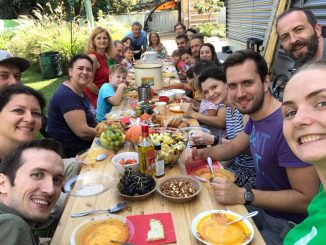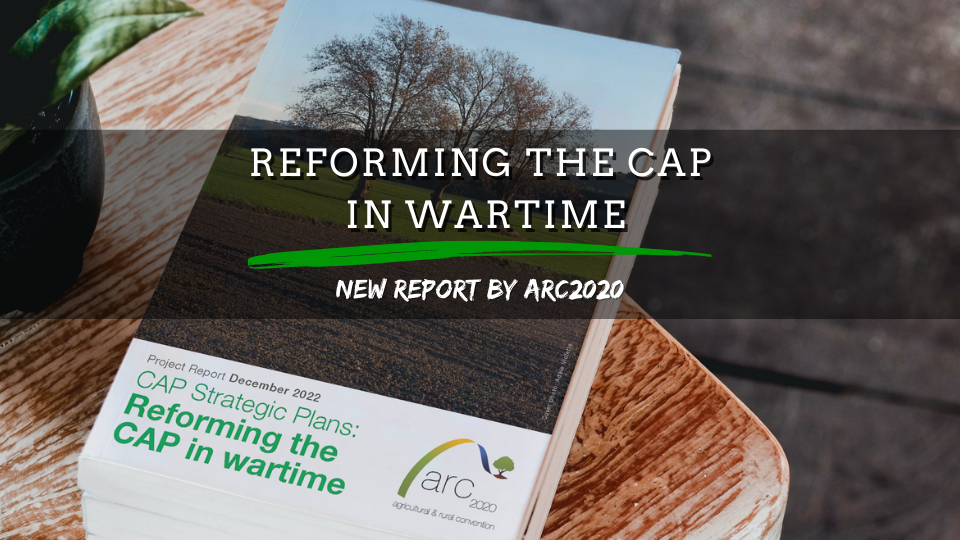
As the last CAP Strategic Plan (Netherlands) has been approved, we launch a report summarising the key aspects of the CAP Strategic Plans approval process that started a year ago. This report is a collection of the work produced throughout the year, a look back on 2022, and what to look for in 2023. It includes in depth analyses of Member States’ Strategic Plans (France, Bulgaria, Wallonia, Ireland), new reflections on CAP and the instrumentalising of food security, transparency gaps, studies on the impact of CAP beyond the EU, and various analyses of the approval process.
By Mathieu Willard
A look back on 2022
Throughout 2022, the influence of the war in Ukraine has shaped the debate around the future of global food security, trade, and agriculture. In our view, this terrible war – as is the case with many other invasions and wars that have occurred in the last decade and are still happening in the world – has been instrumentalised in favour of financial speculation and a techno-driven, environmentally damaging, produc-tivist agenda. It has exposed the European food system’s dependency on a strong monetary position and import of foreign fossil fuel energy, materials, and raw agri-food commodities.
Download the full report as a PDF
Instead of changing direction, this unexpected turn of events has been politically translated in different ways to defend unsustainable agri, rural, and trade practices. Unsurprisingly, the strongest voice has been the one of agri-industrial lobbies, urging policy-makers to increase short-term productivity, support the chemical fertiliser industry, and push for the postponement of key CAP conditionalities and Green Deal Objectives.
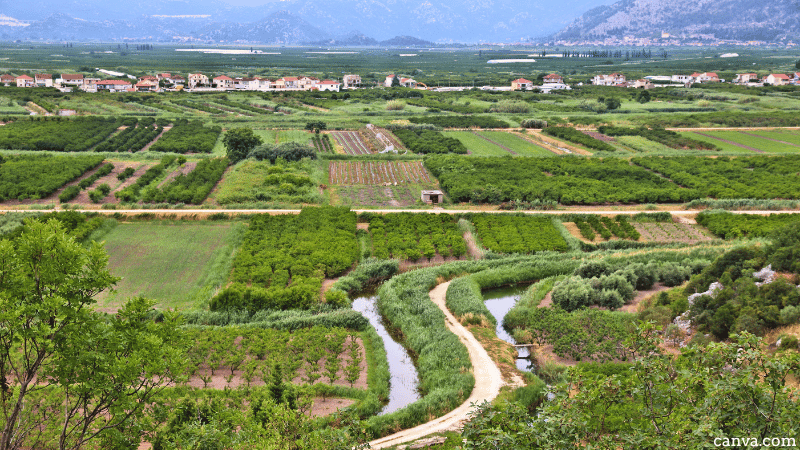
Today we are confident to talk about a CAP post-2022 that has been made to fit for wartime. Now more than ever, the CAP has entered into the geopolitics of wartime, defending business-as-usual decisions or greenwashing over international food security, national interests, hunger, and human rights arguments. Indeed, this reinvigorated narrative for food security was politically translated into a Commission communication and Parliament resolution back in March. The new agenda was ostensibly to safeguard food security, by securing fertilizer and feed supply, allowing agricultural production on ecological focus areas with possible pesticide use, and allowing derogations on future CAP conditionalities.
Even though the Green Deal and specifically the Farm to Fork Strategy were still politically supported as the right policy for ensuring long-term food security, the momentum had shifted from the need for direct policy implementation now to an adjustment some time in the future. This new hyper-productivist narrative started to effectively influence the rest of the NSPs approval process. The recommendation was now to adapt them with “relevant flexibilities to increase acreage of land under production”. For the rest of the year the excuse of at-risk food security has been used to undermine crucial aspects and strategies of the approval process.
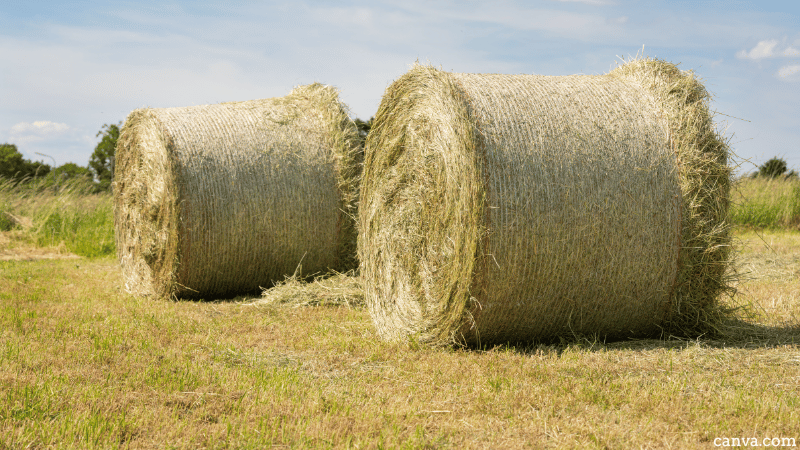
In this new report, we reveal on how the observation letters and transparency requirements were overlooked by Member States. We expose how the political context laid bare our dependency on fossil fuels for agricultural production – and how rural development policies suffered from it. Finally, we make a pledge for an agroecological transition, integrating the need for an agriculture that works for nature and farmers.
What to look for in 2023
In the current context, it is really tempting to already look further to the post-2027 CAP and start thinking about possibilities of real revolutions in the CAP functioning. Even Wojciechowski, the AGRI commissioner responsible for this programming, has already said that the next challenge would be to get a stronger 2027-CAP.
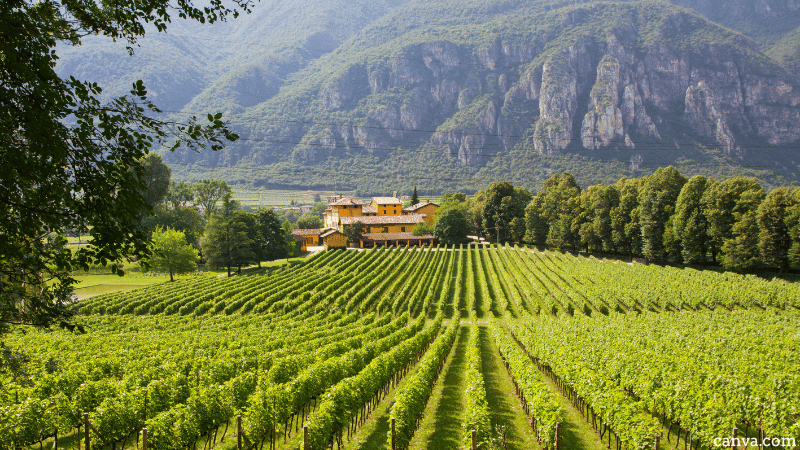
Even though the reflection on the next CAP should in effect start now as it will be a central focus for the next elections, we think that we should still keep our focus on tools at our disposal to influence the CAP directly. There is the possibility to amend the NSPs with the first annual review. But the new monitoring and evaluation system still has to prove its efficiency in the mapping of incoherencies and underachieving measures. This process will have to be critically assessed throughout 2023 so that needed adjustments can be brought before a 2025 midterm review that will provide more opportunities for changes.
Governance will be a central focus for 2023. Regional and local bodies should continue to play a grower role in CAP and increase their decision making and governance capacity even in this shift towards CAP simplification and nationalisation. But we also want to highlight good farming practices that will, for some, be introduced for the first time in January 2023. All the tools cannot be changed every 7 years and we need to base our projections on what is working now.
Our hope for 2023 is an open, democratic, transparent governance system to bring to light the good agroecological (agronomic, social or economic) practices on which to base the future of the CAP.
Not enough? Check our previous reports
During the first two years of the CAP Strategic Plan Project, the goal had been to closely follow, report on, and critically assess the advancement of the CAP reform post-2022. A proposal was presented by the Commission back in 2018, before two major political events: Brexit and EU parliamentary elections in 2019. After the Council and Parliament reached agreements on their own positions in October 2020, it had become clear that the Commission’s enthusiasm for an ambitious reform was not shared by the other two co-legislators. Our first annual project report thus tried to answer the overarching question: has the CAP reform post-2022 been lost in ambition?
In late 2020 and 2021, the inter-institutional or trilogue negotiations began again, and the three pro- posed CAP regulations were only finally approved in December 2021. During this trilogue period, the original environmental and social ambition of the text, notwithstanding support from the newly introduced European Green Deal, slowly got watered down. As numerous amendments slowly weakened the original CAP proposal, we asked ourselves a new quesion in our second project report: has the CAP reform post-2022 been lost in details?
Download the full report as a PDF
 This article is produced in cooperation with the
This article is produced in cooperation with the
Heinrich Böll Stiftung European Union.
More on CAP Strategic Plans
Can the CAP Strategic Plans Help in Reaching our Pesticide Reduction Goals?
Wallonia’s Observation Letter: A plan that fails to address climate and biodiversity crises
CAP Strategic Plans and Food Security: Fallow Lands, Feeds, and Transitioning the Livestock Industry
A Just and Green CAP and Trade Policy in and Beyond the EU – Part 2
A Just and Green CAP and Trade Policy in and Beyond the EU: Part 1
Bulgaria’s CAP Strategic Plan: Backsliding on Nature and Biodiversity
Changes “required” to Ireland’s CAP Strategic Plan – European Commission
French CAP Plan: What Opportunities for Change During the New 2022-27 Presidential Term?
CAP, Fairness and the Merits of a Unique Beneficiary Code – Matteo Metta on Ireland’s Draft Plan
ARC Launches New Report on CAP as Member States Submit Strategic Plans
Slashing Space for Nature? Ireland Backsliding on CAP basics
Quality Schemes – Who Benefits? Central America, Coffee and the EU
Civil Society Organisations Demand Open and Ambitious Approval of CAP Plans
CAP Strategic Plans: Germany Taking Steps in the Right Direction?
CAP Strategic Plans: Support to High-Nature-Value Farming in Bulgaria
Commission’s Recommendations to CAP Strategic Plans: Glitters or Gold?
German Environment Ministry Proposals For CAP Green Architecture
CAP Performance Monitoring and Evaluation Framework – EP Position
A Rural Proofed CAP post 2020? – Analysis of the European Parliament’s Position
CAP Beyond the EU: The Case of Honduran Banana Supply Chains
CAP | Parliament’s Political Groups Make Moves as Committee System Breaks Down
CAP & the Global South: National Strategic Plans – a Step Backwards?
CAP Strategic Plans on Climate, Environment – Ever Decreasing Circles
European Green Deal | Revving Up For CAP Reform, Or More Hot Air?
Climate and environmentally ambitious CAP Strategic Plans: Based on what exactly?
How Transparent and Inclusive is the Design Process of the National CAP Strategic Plans?





